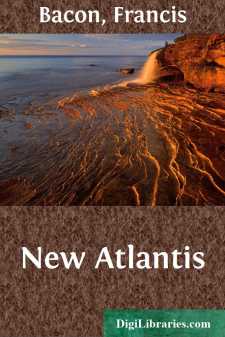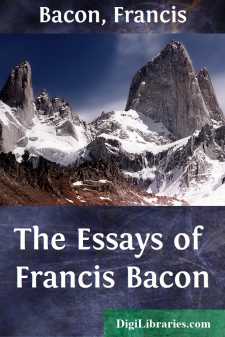Categories
- Antiques & Collectibles 13
- Architecture 36
- Art 48
- Bibles 22
- Biography & Autobiography 813
- Body, Mind & Spirit 142
- Business & Economics 28
- Children's Books 16
- Children's Fiction 13
- Computers 4
- Cooking 94
- Crafts & Hobbies 4
- Drama 346
- Education 46
- Family & Relationships 57
- Fiction 11829
- Games 19
- Gardening 17
- Health & Fitness 34
- History 1377
- House & Home 1
- Humor 147
- Juvenile Fiction 1873
- Juvenile Nonfiction 202
- Language Arts & Disciplines 88
- Law 16
- Literary Collections 686
- Literary Criticism 179
- Mathematics 13
- Medical 41
- Music 40
- Nature 179
- Non-Classifiable 1768
- Performing Arts 7
- Periodicals 1453
- Philosophy 64
- Photography 2
- Poetry 896
- Political Science 203
- Psychology 42
- Reference 154
- Religion 513
- Science 126
- Self-Help 84
- Social Science 81
- Sports & Recreation 34
- Study Aids 3
- Technology & Engineering 59
- Transportation 23
- Travel 463
- True Crime 29
Ideal Commonwealths
by: Francis Bacon
Categories:
Description:
Excerpt
INTRODUCTION.
Plato in his "Republic" argues that it is the aim of Individual Man as of the State to be wise, brave and temperate. In a State, he says, there are three orders, the Guardians, the Auxiliaries, the Producers. Wisdom should be the special virtue of the Guardians; Courage of the Auxiliaries; and Temperance of all. These three virtues belong respectively to the Individual Man, Wisdom to his Rational part; Courage to his Spirited; and Temperance to his Appetitive: while in the State as in the Man it is Injustice that disturbs their harmony.
Because the character of Man appears in the State unchanged, but in a larger form, Plato represented Socrates as studying the ideal man himself through an Ideal Commonwealth.
In another of his dialogues, "Critias," of which we have only the beginning, Socrates wishes that he could see how such a commonwealth would work, if it were set moving. Critias undertakes to tell him. For he has received tradition of events that happened more than nine thousand years ago, when the Athenians themselves were such ideal citizens. Critias has received this tradition, he says, from a ninety-year-old grandfather, whose father, Dropides, was the friend of Solon. Solon, lawgiver and poet, had heard it from the priests of the goddess Neïth or Athene at Sais, and had begun to shape it into a heroic poem.
This was the tradition:—Nine thousand years before the time of Solon, the goddess Athene, who was worshipped also in Sais, had given to her Athenians a healthy climate, a fertile soil, and temperate people strong in wisdom and courage. Their Republic was like that which Socrates imagined, and it had to bear the shock of a great invasion by the people of the vast island Atlantis. This island, larger than all Libya and Asia put together, was once in the sea westward beyond the Atlantic waves,—thus America was dreamed of long before it was discovered. Atlantis had ten kings, descended from ten sons of Poseidon (Neptune), who was the god magnificently worshipped by its people. Vast power and dominion, that extended through all Libya as far as Egypt, and over a part of Europe, caused the Atlantid kings to grow ambitious and unjust. Then they entered the Mediterranean and fell upon Athens with enormous force. But in the little band of citizens, temperate, brave, and wise, there were forces of Reason able to resist and overcome brute strength. Now, however, gone are the Atlantids, gone are the old virtues of Athens. Earthquakes and deluges laid waste the world. The whole great island of Atlantis, with its people and its wealth, sank to the bottom of the ocean. The ideal warriors of Athens, in one day and night, were swallowed by an earthquake, and were to be seen no more.
Plato, a philosopher with the soul of a poet, died in the year 347 before Christ. Plutarch was writing at the close of the first century after Christ, and in his parallel Lives of Greeks and Romans, the most famous of his many writings, he took occasion to paint an Ideal Commonwealth as the conception of Lycurgus, the half mythical or all mythical Solon of Sparta....





